WANTO
Women are the Key to the Future of Construction
Oregon Tradeswomen, in partnership with the U.S. Department of Labor Women’s Bureau and Portland Community College (PCC), celebrated Women in Construction Week at our “We Are the Key” event on March 4th! With the theme of this year’s Women in Construction Week being “Keys to the Future,” tradeswomen and advocates from across the industry gathered to talk about why Oregon women are the key to the future.
Hari Chon, Program Analyst for the U.S. Department of Labor Women’s Bureau, opened the event by sharing the origins of the Women’s Bureau back in 1920, two years before women got the right to vote. Established by the U.S. Department of Labor, the Women’s Bureau was formed to promote the welfare of women and advancing opportunities for women in the workforce. Through research and grants such as the Women in Apprenticeship and Non-Traditional Occupations (WANTO), the Women’s Bureau is actively working in alignment of Oregon Tradeswomen’s vision to improve and increase women’s participation in high-skill, high-wage union careers in the skilled trades. Oregon Tradeswomen is grateful for Hari and the Women’s Bureau for their support.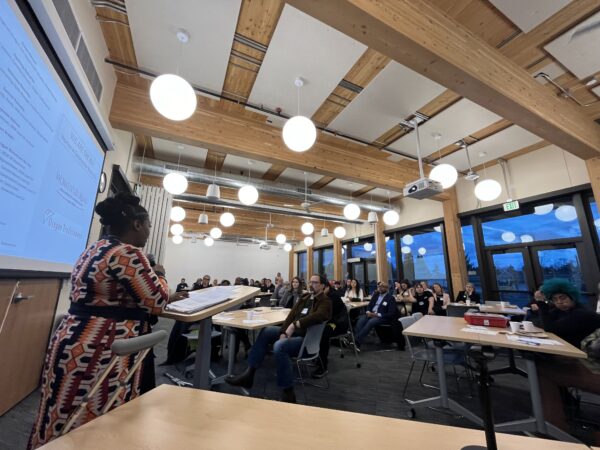
The event took place at Portland Community College’s new Opportunity Center, a space built in alignment with project labor agreements ensuring the work was done with diversity, equity, and inclusion in mind. Amy James Neel, Workforce & Contracting Equity Manager for Portland Community College, detailed that PCC incorporated voices from the community in the design and planning of this project, and worked with contractors, subcontractors, dispatchers, union halls, and apprentice coordinators to maximize opportunity and access for women and BIPOC workers to earn a living wage in these careers. In fact, 10,599 (51.5%) total hours were worked by apprentice women, 4,402 (41.5%) total hours were worked by BIPOC apprentice women. The total hours worked by women were 12,308 (16.8%), meeting and exceeding project goals. We were thrilled to learn that some of the tradeswomen who attended the event worked on the project and were excited to revisit the space that they helped build. To be in a space exemplifying the goals and intentions of Oregon Tradeswomen was inspiring, and we thank PCC for hosting us.
With a venue whose planning and construction not only talked the talk, but walked the walk, it was fitting that our event speakers echoed the need to tear down barriers enforced by systems set up to serve the interests of a select few rather than us all. Sebrina Owens-Wilson, the Director of Diversity, Equity, and Inclusion at Metro addressed how government agencies are coming together to find ways to help women and people of color access these high-wage, high-skill union jobs. One pathway towards progress is the implementation of Project Labor Agreements (PLA) and Community Benefit Agreements (CBA) such as the ones that were enforced on the PCC Opportunity Center project to much success. Our regional framework sets goals that ensure 20% of hours each week are worked by apprentices, 14% worked by women, and 25% worked by BIPOC. Sebrina spoke further on the importance of funding pre-apprenticeship programs to train up qualified and diverse workers, community organizations that reduce barriers to employment, and jobsite culture change programs such as RISE Up to increase the retention of a diverse workforce. This work is ongoing as shifting systems is a long game, but Sebrina left on the message that, “As women, we can do amazing things on our own… but we can move mountains if we work together.”
The theme of strength and working together towards a better future was emphasized when Isis Harris, Union Electrician with IBEW Local 48, Oregon Tradeswomen Board Member, and small-business owner, took the stage. Isis echoed Sebrina’s words when she spoke about coming together to collectively build a better future for women and the construction industry. By forging life-long friendships and mentorships between tradeswomen, we can foster an environment that highlights the potential of women and lifts each other up. While we can hold the door open for more women to enter the trades, Isis reminded us that we need to act now to retain the women who cross that threshold. The keys to retaining women in construction start with breaking down systemic barriers to employment such as access to childcare and maternity benefits. As we look to change the systems, we need accomplices to do this work. Together, we can lobby, advocate, and build systems that work for women and people of color. “We are not only the future, but we are the dismantlers of the past,” Isis shared. “Our walk is no longer about hopes and dreams, but the execution of strategized plans. Here and now, we are working lockstep towards a more sustainable future for women in construction. There is no completeness in the industry without us. There is no week on the calendar strong enough to contain our greatness. We are here not to forge a path, but to pave a freeway for women in the trades.”
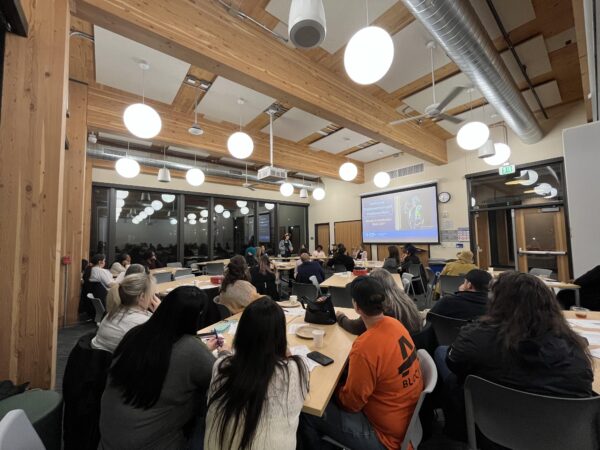 Following Isis’s powerful message, Susan Rodway, Treasurer at IBEW Local 48, moderated a panel discussion with Anjanet Banuelos Bolanos, Business Representative at LiUNA Local 737, Liz Nichols, Business Representative at Cement Masons Local 555, Montana Maurice, Project Engineer at Anderson Construction with Carpenters Local 271, Sharon Maxwell, Owner of Bratton Construction, and Willow Ryan, Co-Chair of Sisters of Iron with Ironworkers Local 29 as they shared about their paths into the trades, experiences with mentors and allies in the industry, and how to take your career to the next level. Three things became clear: Access to pre-apprenticeship training offered a pathway for all these women to find successful careers in construction; Mentors, allies, and a support system in general are crucial for successfully training and retaining women in construction; Women are held to a higher standard than their male counterparts and must go above and beyond to prove their themselves in the field. This panel illuminated the shared experiences of tradeswomen across trades, provided insight into where we are, and painted a picture of what the future could look like if we continue to collaborate on this important work.
Following Isis’s powerful message, Susan Rodway, Treasurer at IBEW Local 48, moderated a panel discussion with Anjanet Banuelos Bolanos, Business Representative at LiUNA Local 737, Liz Nichols, Business Representative at Cement Masons Local 555, Montana Maurice, Project Engineer at Anderson Construction with Carpenters Local 271, Sharon Maxwell, Owner of Bratton Construction, and Willow Ryan, Co-Chair of Sisters of Iron with Ironworkers Local 29 as they shared about their paths into the trades, experiences with mentors and allies in the industry, and how to take your career to the next level. Three things became clear: Access to pre-apprenticeship training offered a pathway for all these women to find successful careers in construction; Mentors, allies, and a support system in general are crucial for successfully training and retaining women in construction; Women are held to a higher standard than their male counterparts and must go above and beyond to prove their themselves in the field. This panel illuminated the shared experiences of tradeswomen across trades, provided insight into where we are, and painted a picture of what the future could look like if we continue to collaborate on this important work.
As Donna Hammond, Interim Executive Director of Oregon Tradeswomen, took the stage, she shared how struck she was by the collective passion and dedication that filled the room. Being a native Portlander born into a strong union family, and someone who became a pioneer for black women in construction in her 40+ years as a Union Electrician, Donna spoke about how humbled and inspired she was to share the stage with so many leaders in the tradeswomen movement. She reminded the crowd that “we convene here today not just as attendees, but as master builders and narrators of our own unique stories.” By sharing and amplifying these stories, Donna says “we lay a foundation for future growth and change in our industry.” Donna also announced a new and exciting partnership between Oregon Tradeswomen, IBEW Local 48, and the Department of Energy to create pathways for African American women and other women of color to enter the skilled trades with a focus on being certified as electrical vehicle changing station installers. We are excited to progress our mission to diversify the trades while providing access to high-wage careers that utilize cutting-edge technology in this new era of green energy infrastructure.
Donna closed out the event by circling back to the theme of the night, asking “Who holds the key?” to which the room exploded in a cheer of “We are the key!” The enthusiasm of the attendees was palpable, and sharing space in this beautiful new building was the perfect way to kick off Women in Construction Week. Thank you to the Women’s Bureau and Portland Community College for collaborating on this inspiring event and showing unwavering commitment to our cause. Together, we hold the key to building a more inclusive future for women in construction.
OTI Awarded U.S. Department of Labor Grant for Women in Apprenticeship
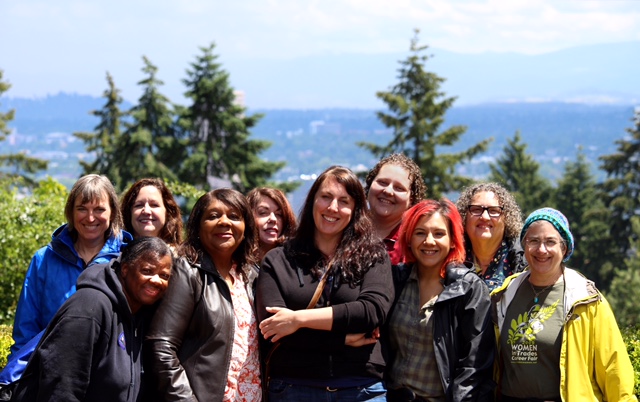
Oregon Tradeswomen, Inc. Staff Members
Oregon Tradeswomen, Inc. (OTI) is proud to announce that on June 14, 2016, we were awarded a Women in Apprenticeship and Non-Traditional Occupations (WANTO) grant to continue our work connecting women with high wage, high skill trades careers through registered apprenticeship.
“Oregon Tradeswomen, Inc. is honored to work with our partners, Seattle-based Apprenticeship and Nontraditional Employment for Women and Oakland, California-based Tradeswomen Inc. through the Women in Apprenticeship and Non-Traditional Occupations program,’’ said Connie Ashbrook, OTI’s Executive Director. “Many women in our communities are passionately interested in working in the construction, manufacturing and utility trades, but don’t know where to get started. Our joint efforts to provide women with the education, skills, and connections they need support their access to and success in family-supporting trades careers, while at the same time helping apprenticeship programs and employers diversify their workforces.”
The $650,000 will be awarded over the course of two years. It will fund direct technical assistance work in the Portland, Seattle, and Oakland metropolitan regions, as well as outreach throughout the Western United States.
Under our prior WANTO grant, OTI was able to launch the Western Resources Center for Women in Apprenticeship website which supplements our technical assistance efforts and outreach to western apprenticeship programs.
With the support of the U.S. Department of Labor, we are thrilled to have the opportunity to continue this work and build on our partnerships with ANEW, Tradeswomen, Inc., and registered apprenticeship stakeholders in the western region.
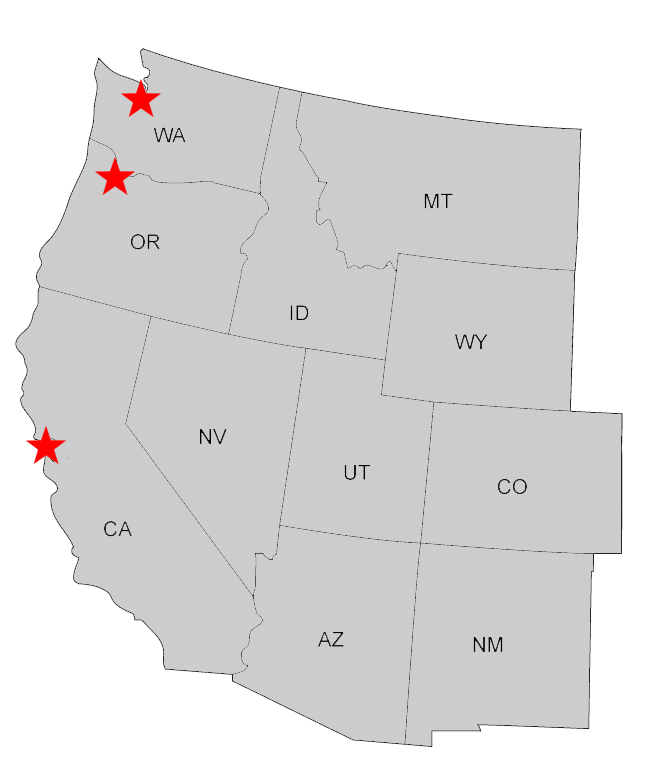
OTI at the United State of Women Summit
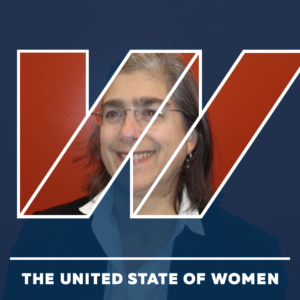 We are so proud to represent tradeswomen at the United State of Women Summit happening in Washington, DC starting June 14, 2016. The summit is a collaboration of the White House Council on Women and Girls, the Department of Labor, the Aspen Institute, and Civic Nation. The Summit is a convening of women leaders who will together work to address gender equity in the areas of health and wellness, educational opportunity, violence against women, entrepreneurship and innovation, leadership and civic engagement, and economic opportunity.
We are so proud to represent tradeswomen at the United State of Women Summit happening in Washington, DC starting June 14, 2016. The summit is a collaboration of the White House Council on Women and Girls, the Department of Labor, the Aspen Institute, and Civic Nation. The Summit is a convening of women leaders who will together work to address gender equity in the areas of health and wellness, educational opportunity, violence against women, entrepreneurship and innovation, leadership and civic engagement, and economic opportunity.
OTI’s Executive Director, Connie Ashbrook, will join a delegation of 35 tradeswomen from around the country, along with First Lady Michelle Obama, Tina Fey, Oprah, and thousands of other women all working toward lifting up women and our nation. Watch the live stream Tuesday, June 14th, 2016 if you’d like to take it in!
While at the Summit, Connie will be supporting the National Taskforce on Tradeswomen’s Issues policy platform by speaking with other attendees about our priorities, which include advocating for:
- Releasing the new apprenticeship EEO regulations, and ensuring that they contain strong language supporting increasing the number of women in apprenticeship
- Dedicated, specific federal funding through WANTO that directly supports tradeswomen
- Increased support for existing workforce hiring goals through compliance efforts and sustainable technical assistance
- A strengthened pipeline between schools and apprenticeship that has specific goals for female participation
You can follow the conference online and through social media. Take the pledge to work for gender equity in whatever you do best, and make sure to support your sisters at the #StateOfWomen conference by using the #tradeswomen hashtag when you post!
Congress Passes Extension on WANTO Training Funds!
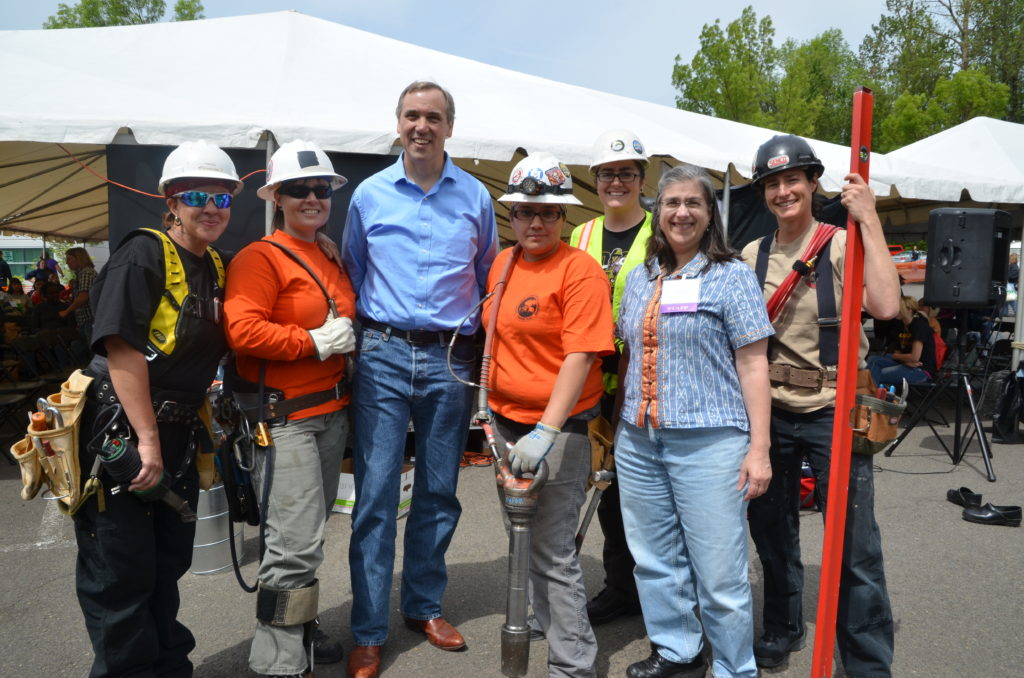
Senator Jeff Merkley at the 2012 Women in Trades Career Fair
We’re thrilled to announce that the Women in Apprenticeship and Non Traditional Occupations (WANTO) program has received funding for another year! Along with our co-grantees ANEW, Tradeswomen, Inc., NEW-NYC, and Chicago Women in Trades, Oregon Tradeswomen, Inc. advocated for the renewal of the WANTO program, which remains the only source of federal funding that specifically targets women’s participation in apprenticeship.
Together in a coalition with our co-grantees, OTI worked closely with the staff of U.S. Senator Jeff Merkley, whose leadership was instrumental to getting WANTO funds included in the federal budget.
“Women hold less than three percent of high-wage jobs in the construction industry and face many barriers in gaining access to these nontraditional jobs,” said Merkley. “I’ve fought for funding for WANTO because it will make a big difference in helping train and ultimately put women in Oregon to work in high-wage, electrical, mechanical, highway and utility trades jobs that will provide financial security for a lifetime.”
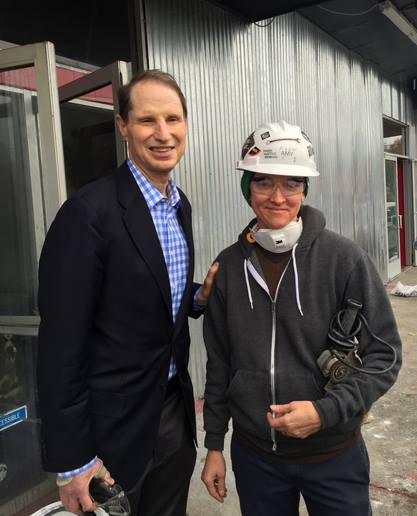
Senator Ron Wyden with TACC instructor Amy at the “Sugar Shack” in Northeast Portland
We’re proud of the work that we have accomplished with WANTO funds, which are critical to our ability to provide training to low income women at no cost to them. This fall, students in our WANTO-funded Trades and Apprenticeship Career Class inspired community partners and Oregon leaders through their work to demolish and repurpose the former “Sugar Shack” strip club into a Cully neighborhood asset. We were fortunate to be able to share that work with U.S. Senator Ron Wyden, who stopped by the job site after learning about our community partnership.
We’re thankful to our allies in the Senate who heard our call and took action on behalf of women everywhere.
Call to Action: Tell Congress You Support Funding WANTO
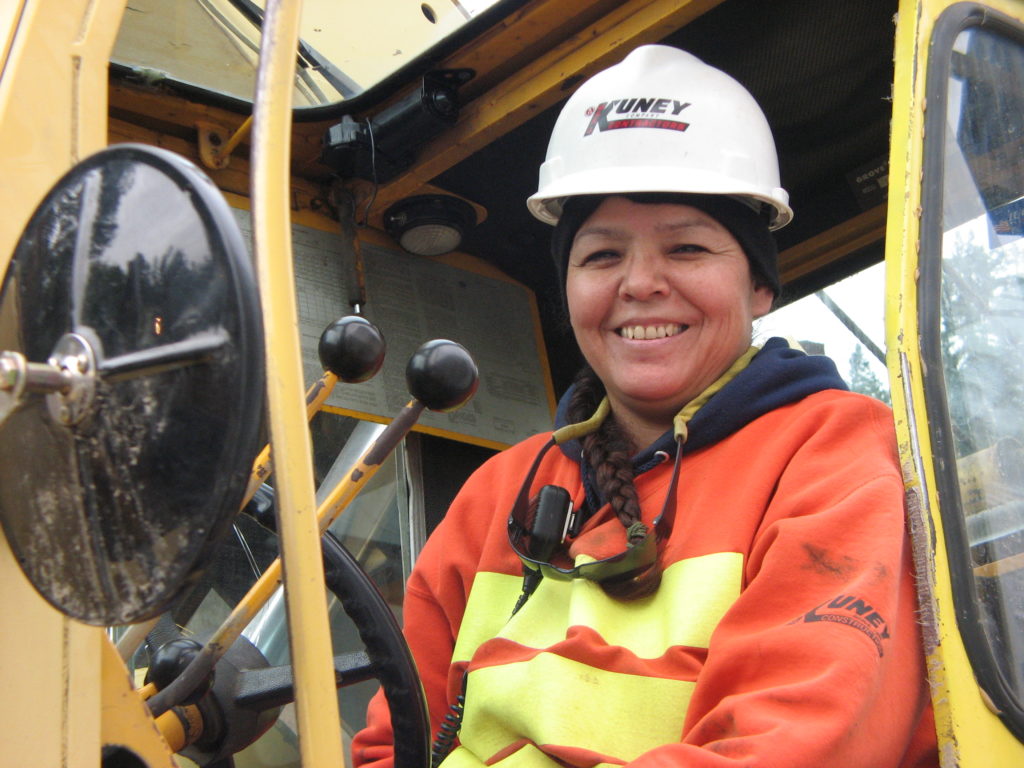 The Women in Apprenticeship and Non-Traditional Occupations (WANTO) Act is a small pool of money that organizations like Oregon Tradeswomen rely on to run pre-apprenticeship classes for women. WANTO appropriations amounted to less than $2 million over the last two years, but the program’s impact on women’s economic security is colossal. With the support of this crucial funding source, WANTO grantees (including Oregon Tradeswomen) have helped thousands of women access meaningful careers in male-dominated industries with quality, family-supporting wages. Regions where WANTO-funded organizations work have more than twice the national average of women employed in construction trades. WANTO works!
The Women in Apprenticeship and Non-Traditional Occupations (WANTO) Act is a small pool of money that organizations like Oregon Tradeswomen rely on to run pre-apprenticeship classes for women. WANTO appropriations amounted to less than $2 million over the last two years, but the program’s impact on women’s economic security is colossal. With the support of this crucial funding source, WANTO grantees (including Oregon Tradeswomen) have helped thousands of women access meaningful careers in male-dominated industries with quality, family-supporting wages. Regions where WANTO-funded organizations work have more than twice the national average of women employed in construction trades. WANTO works!
Oregon Tradeswomen needs your help: The federal budget under currently under consideration by Congress provides zero dollars for WANTO. But with your help, we can change that and get WANTO back in the budget. We need your voice for our message to be heard in Congress.
The best way to support Oregon Tradeswomen’s efforts to keep WANTO alive is to contact your elected representatives and tell them how vital WANTO is to women in the trades. We’ve made it easy – you can write to your representative with the simple template linked below. (Make sure to read through and personalize your message.) Support tradeswomen, support OTI, and support our sister organizations around the nation. Tell Congress that programs that work should be expanded, not cut out of the budget. Fund WANTO, WANTO works!
